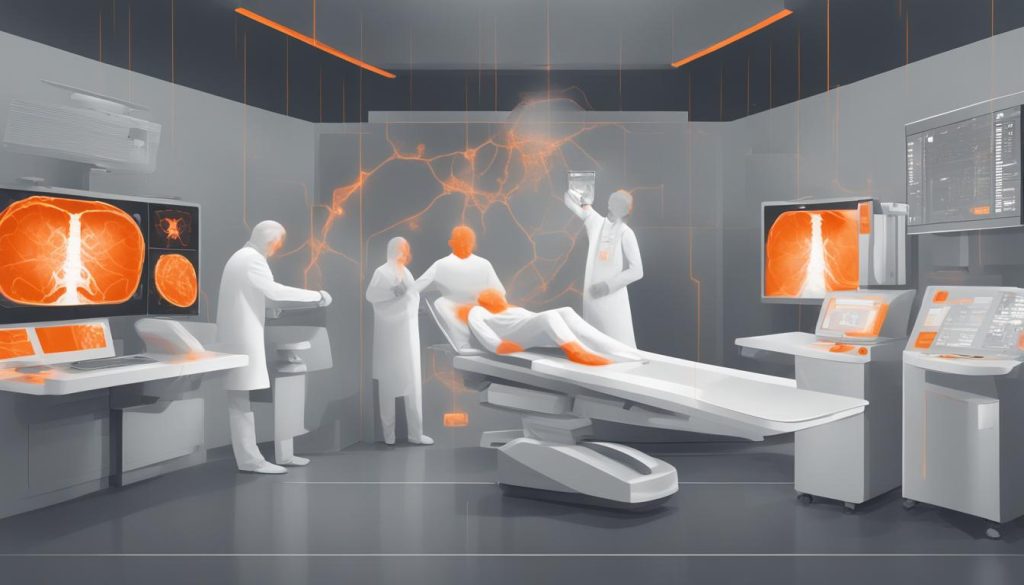A ground-breaking project in Scotland that harnesses artificial intelligence is revolutionising cancer diagnosis and treatment, leading to faster identification of tumours and potentially saving hundreds of lives annually. The AI technology, currently under trial in multiple sites across Scotland, has significantly accelerated the diagnostic process, allowing patients to start treatment weeks earlier and improving their chances of survival.
Cancer patients in Scotland are experiencing faster diagnoses and treatments due to a pioneering project that harnesses artificial intelligence (AI). This initiative, experts suggest, could potentially save hundreds of lives annually.
The project involves AI technology scanning X-rays as they are conducted, instantly identifying tumors, including tiny growths that radiologists might overlook. By referencing a vast comparative database of previous X-rays, the AI can quickly flag the most critical cases for further tests and urgent treatment.
Utilizing AI has notably accelerated the diagnostic process, enabling patients to begin treatment weeks earlier, thus enhancing their survival chances. The technology is under trial across multiple sites in Scotland, and early results from NHS Grampian have demonstrated its significant potential.
NHS Grampian’s trial, focusing on lung cancer detection in Aberdeenshire, has shown promising results. Dr. Andy Keen, NHS Grampian’s clinical director of innovation, noted that the time from chest X-rays to treatment for lung cancer has been reduced by an average of nine days. This has led to a decrease in treatment delays, with 90% of lung cancer patients now treated within 76 days, down from 99 days previously. The AI tool has also been instrumental in identifying earlier stage, treatable cancers, increasing detection rates by around 11%, potentially resulting in 600 more treatable lung cancer diagnoses per year in Scotland.
The AI system, developed by Australian firm Annalise.ai, was introduced to the UK in 2022 and installed at 12 sites within NHS Grampian. Trained with over 820,000 chest X-ray images, the AI swiftly examines each X-ray for 124 potential issues, prioritizing 34 critical findings.
The AI system’s early success at identifying tumors and flagging cases for priority has led to patients undergoing detailed CT scans and commencing treatment more swiftly. The Scottish Health Technology Group’s latest report highlighted that integrating AI into clinical pathways shows promise in reducing diagnostic and treatment times and increasing the detection of treatable lung cancers.
Similar AI trials are ongoing in NHS Greater Glasgow and Clyde, focusing on lung cancer detection, and at Aberdeen Royal Infirmary, where AI is being tested for mammogram reviews. Dimitry Tran, co-founder of Annalise.ai, emphasized that the data from NHS Grampian indicates that the AI technology markedly improves early-stage lung cancer detection, a critical step toward reducing lung cancer mortality.










